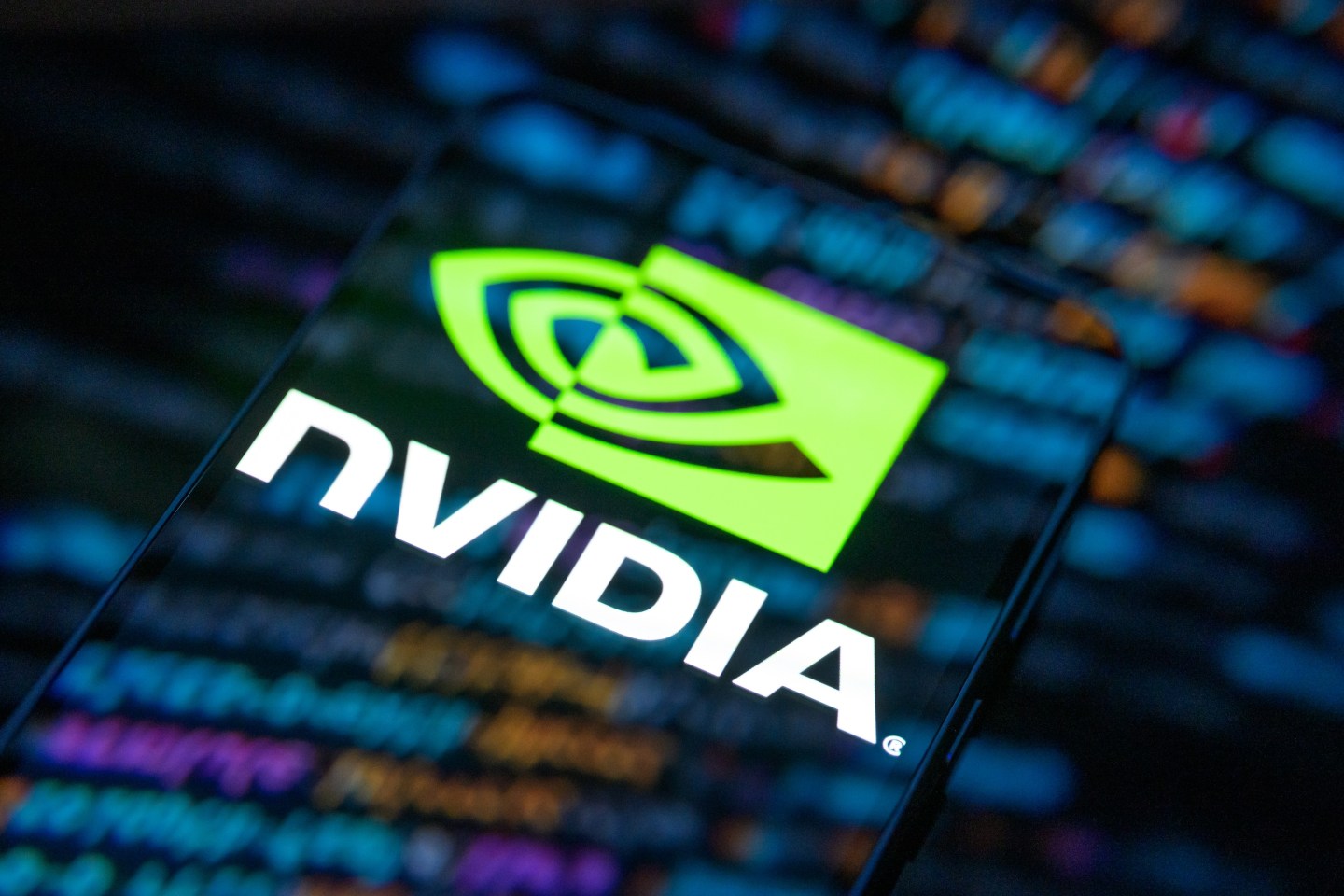Good morning. Fortune’s intrepid editor-in-chief Alyson Shontell published a lovely item yesterday about Cloudflare CEO Matthew Prince, who has taken up arms against the AI scraping problem that plagues today’s publishers.
To no one’s surprise, today’s go-to AI platforms do a lot of crawling for information, but not a lot of referring to the original source of that information—and the latter is where publishers get to monetize their efforts. Clearly the model is breaking, Prince says.
A lot of big brains are thinking about this issue; here’s hoping they solve it before lawsuits put a damper on your AI chatbot of choice. —Andrew Nusca
P.S. If you’re further interested in this topic, serial entrepreneur Bill Gross smartly presented on this topic at Fortune Brainstorm AI in San Francisco this past December. Watch it here.
Want to send thoughts or suggestions to Data Sheet? Drop a line here.
Google whiffs on quarterly cloud revenue

Shares of Google parent Alphabet fell on Tuesday after the company reported quarterly earnings results that showed slowing growth in the cloud business—an important yardstick for investors seeking to gauge the company’s progress in the ultra-competitive AI race.
Google Cloud grew its fourth-quarter revenue by 30% from the year before, totaling roughly $12 billion—a nice haul, except for the fact that Google Cloud’s growth rate in the previous quarter was 35%, and analysts were looking for 33% growth this time around.
As Alphabet CFO Anat Ashkenazi explained on an earnings call Tuesday, the slowdown was partially attributable to a shortage of supply: Google doesn’t have enough capacity in its data centers to meet all the demand (a problem it hopes to resolve by spending a massive $75 billion on capital expenditures this year, with 11 new data centers slated for operation).
Ashkenazi also pointed out that Google Cloud Platform—a subset of the cloud business with a strong AI component—grew at a faster rate than the overall cloud business.
Investors weren’t soothed however, with shares of Alphabet down about 8% in after hours trading. The reaction echoed the Microsoft selloff last week when its cloud business results came in light.
Alphabet executives, including CEO Sundar Pichai, reeled off a series of stats to show the company’s strength. But at the end of the day, Alphabet’s overall business grew at a steady, but hardly exceptional, 12% rate—and, as many of the analyst questions on the earnings call suggested, there are still a lot of questions around how Google’s core search business will weather the AI storm. —Alexei Oreskovic
Reacting to Trump tariffs, USPS halts all packages from China
One day after President Trump’s new 10% tariff on Chinese-made goods took effect, the U.S. Postal Service has abruptly stopped accepting packages from Hong Kong and China, roiling Chinese e-commerce companies such as Alibaba, JD.com, Shein, and Temu.
The USPS update was terse but clear: “INTERNATIONAL SERVICE SUSPENSION NOTICE: Effective Feb. 4, the Postal Service will temporarily suspend only international package acceptance of inbound parcels from China and Hong Kong Posts until further notice. Note the flow of letters and flats from China and Hong Kong will not be impacted.”
Shares of the Chinese companies were largely unchanged in the immediate wake of the USPS update, though they were all down substantially when Trump’s tariffs first took effect Tuesday.
As mentioned in a previous edition of Data Sheet, the new U.S. tariffs closed the so-called de minimis provision loophole that allowed packages valued at less than $800 to go straight to U.S. consumers free of levies.
On Monday, Fortune’s Jason Del Rey wrote that “bargain-basement prices on Temu and Shein might soon be getting pricier.” In the shortest term, though, consumers won’t be able to get those products at all.
Where to go from here? Wired notes that U.S. Customs and Border Protection could either hold packages at the border until import duties have been paid (creating a backlog), or keep things moving and collect funds from importers retroactively.
Given how fast the situation is evolving, don’t expect those Chanel-inspired ballet flats to arrive too soon. —AN
AMD reaches a revenue milestone, but the markets are still jittery
AMD reported a record $7.7 billion in quarterly revenue on Tuesday, beating Wall Street’s expectations.
The California chipmaker also reported a record $25.8 billion in revenue for its fiscal 2024 and improved its Q1 sales forecast to $7.1 billion, above analyst estimates.
Despite the positive results, AMD shares fell by as much as 10% in after-hours trading, settling around $109.
Why the slide? Surely Trump’s new tariffs on Chinese-made goods, and China’s retaliatory response, didn’t help. AMD chips are principally made by TSMC in Taiwan and packaged in Malaysia, but China and Hong Kong represent a significant source of sales for the company—about 15% in 2023.
The sudden emergence of DeepSeek’s R1 AI model late last month, which implied that pricey high-performance AI chips aren’t necessary to train highly competitive AI, didn’t help, either. (Though the jury remains out on that implication.)
If there’s anything for AMD to take solace in, it’s that the brewing trade war between the U.S. and China affects its peers, too. Both category leader Nvidia as well as diminished icon Intel—both neighbors in Santa Clara—are exposed to the same geopolitical headwinds, even as both the U.S. and China double down on AI infrastructure investment. —AN
More data
—Snap beats expectations. $1.56 billion in Q4 revenue, up 14% from previous year; shares up by 5% in after-hours trading.
—Musk v. OpenAI proceeds. Though Musk claims of irreparable harm from OpenAI’s for-profit shift a “stretch,” per judge.
—BlackRock to hire 1,200 for India AI expansion. A successful Preqin acquisition would add another 1,500.
—Spencer Rascoff becomes Match Group CEO. The Zillow co-founder will oversee a portfolio that includes Tinder, Hinge, Okcupid, and Pairs.
—Netflix chases live sports. Two NFL games at Christmas generated up to $180 million in advertising.
—Figure AI ditches OpenAI. The Bay Area humanoid robotics company made a “major breakthrough” on in-house AI for its bots.
—Thailand cuts electricity to Myanmar in an attempt to curb “cyber scam centers.”














